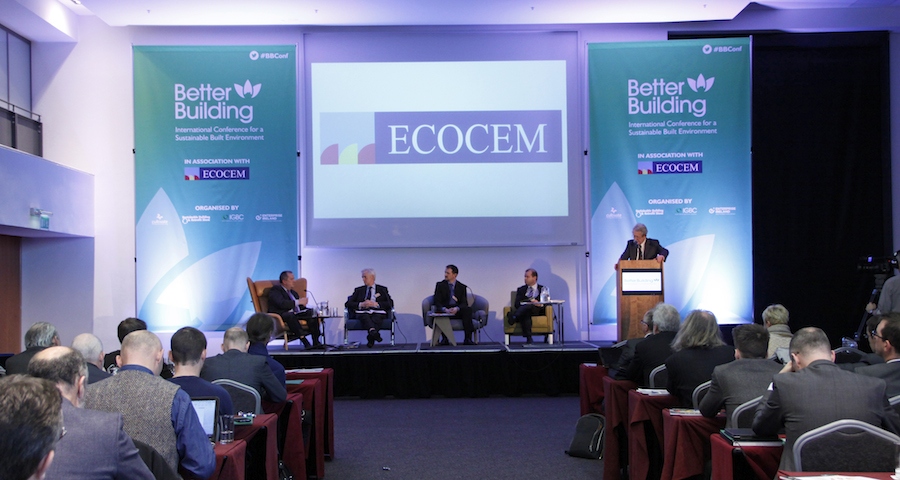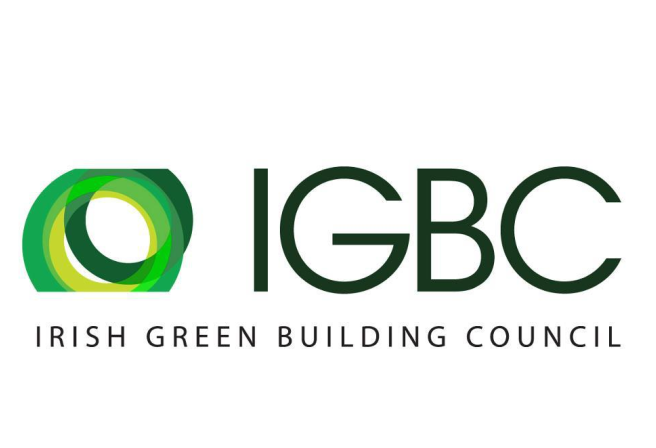
- Events
- Posted
Better Building conference hears commercial property warning
Last week's Better Building conference in Dublin heard from experts speaker on the present and future of the construction industry in Ireland. Topics at this year’s conference pushed the building industry to think beyond energy efficiency and consider full life cycle costs of materials, transportation issues, and living buildings.
Below is an edited version of the official report released by one of the conference's organisers, the Irish Green Building Council.
Over 350 participants gathered on Wednesday the April in Croke Park, Dublin for the 3rd annual Better Building Conference, Ireland’s largest property and construction conference.
Topics at this year’s conference pushed the building industry to think beyond energy efficiency and consider full life cycle costs of materials, transportation issues, and living buildings. Over 35 internationally recognized speakers in 11 presentations gave insights on the built environment from start to finish, from investment to building skills, regulation to performance.
Conference attendees heard a warning from Irish Green Building Council chairman Prof J Owen Lewis that energy standards for new office buildings are now 9 years old and there is a danger that some commercial developers will continue to build to this standard up to 2017, just one year ahead of the EU requirement for near zero energy consumption for all publicly leased or bought buildings.
This could lead to a fall in value for these offices, as they could not be leased by public bodies and would not meet the demanding standards of international investors or foreign direct investment tenants.
David Hourihane, of Sustainable Development Capital LLP (SDCL) the preferred bidder for the Energy Efficiency Fund, outlined how the fund would allow the public sector to invest in energy efficiency without having to draw on exchequer funds. This would create energy savings for the public sector that could then be invested in frontline services. Liam Woods, national director of shared services at the HSE, outlined the benefits of the fund to the health service.
There were robust exchanges between department officials and delegates on the Building Control (Amendment) Regulations 2013, with some architects taking serious issue with the way the amendment had been introduced and the potential negative impact on the construction industry.
A number of international figures including Kevin Hydes, a former chair of the influential US Green Building Council, outlined the speed of change outside of Ireland towards zero energy buildings and eco cities, which makes them more attractive to investors and talent. James Drinkwater, policy advisor with the World Green Building Council, emphasised this point, stating that the European Commission were now concerned about sustainability and competiveness, fearing Europe could fall behind unless it continues to accelerate the agenda.
RTE’s John Bowman facilitated the closing debate in which Dr Melrona Kerrane, a change management psychologist from DCU, warned that “managed urgency” was required to accelerate the sustainability agenda without overwhelming practitioners to the point of panic and stagnation. She encouraged attendees to “amplify the message ten-fold” to reach beyond the typical green players and place sustainability in the mainstream.
Better Building was held in association with Ecocem, the leading supplier of low carbon cement, and organised by the Irish Green Building Council, Cultivate, Enterprise Ireland, and Sustainable Building Show.







